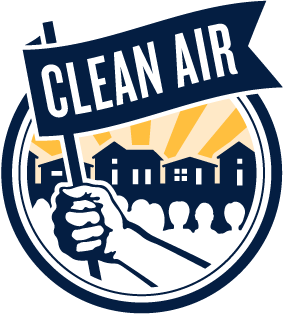4 years after NRG Huntley’s Closure, Community Asks How Far Has Tonawanda Come?
Following national trends of low gas prices, uncompetitive coal prices, and lack of demand, the NRG Huntley plant in the Town of Tonawanda was retired in 2016. At the time it was the largest polluter in Erie County and the largest tax provider to the Town. Huntley’s revenue had long allowed for Tonawanda to maintain quality services, roads, education and jobs.
Anticipating the closure, the Clean Air Coalition, the Western New York Area Labor Federation, and the Kenmore Teachers Association, launched a campaign to transition the facility. This work culminated in a state transition fund (Bill S. 6408—C A. 9008–C Section BB), the first fossil fuel transition fund in the country. The bill established a seven year bridge fund to ease the town’s transition away from Huntley revenues and allow the local economy to regain its footing without massive cuts to public services.
To steer the economic transition long term, we produced Tonawanda Tomorrow, a community-based economic transition plan. Led by Clean Air and our labor partners, over 1,000 community members came together to develop this plan, which envisioned an economically vibrant and environmentally sustainable future for the town.
The final section of Tonawanda Tomorrow focuses on implementation, with concrete action steps to fuse the gap in revenue loss long term, increase waterfront access, grow renewable energy, and build wealth for poor and working class people.
Prompting Accountability
Shortly after the town board adopted the plan, the Tonawanda Tomorrow Implementation Team, responsible for the coordination of the plan’s implementation, ceased functioning. For months Clean Air members showed up to Town Board meetings, asking for updates on the implementation process, questions which went unaddressed. By 2019, with no answers from our elected leaders, we knew it was time to take action.
We planned a public meeting where each organization who had committed to next steps in Tonawanda Tomorrow would share their progress. We invited representatives to attend and complete a progress report: a form outlining each project they had committed to, asking what was completed and what milestones were the next priority. Out of the seven organizations listed in the plan, six participated. The Implementation Team did not respond.
Economic Transition is Long Haul Work
Early on in our experience, members of Clean Air’s organizing team had the opportunity to learn from the incredible trainers with Dismantling Racism Works, who grounded us in a guiding principle that racial justice work is both urgent and will take a long time. We see this principle alive in all our organizing work, including economic and energy transition.
As we work to transition to an economy that does not harm our environment or our neighborhoods, we have to balance a collective vision for that future, while at the same time engage in the present. This means our organizing needs to be immediate and relevant, AND invested for the long haul. We need institutions that build and sustain community and power.
Long haul work means at times it’s tedious and invisible. It means sometimes we need to create moments that inspire others to feel the urgency simmering just beneath our daily lives. Urgency invokes motivation, accountability, and compels decision makers and implementers to stop wasting time.
Over 60 people attended our meeting on October 15th. Campaign team members designed the agenda, co-facilitated the meeting, and worked with press. Presenters on projects included members of the Tonawanda Town Board, the Town Planning and Engineering Department, Niagara Frontier Transportation Authority, Clean Air, the Western New York Area Labor Federation, the United Steelworkers and the Kenmore Teachers Association.
Where do we go from here?
Just Transition is easy to talk about. It’s incredibly difficult to practice. We need systematic structural change in our economy: both in how it works and who it works for. It means that we have to organize for what needs to be done and who makes the decisions at the same time. We do this work in a landscape of decision makers who, most of the time, do not like to collaborate, do not want to solve difficult problems, and who perceive sharing power as giving up control.
Let’s be clear. We are not just trying to solve a problem about a coal plant closure, job loss and revenue cuts. We are trying to end economic inequality. We are trying to end environmental racism. We are trying to solve the climate crisis. We are trying to bring environmental justice. We are trying to change governments so that decisions are made by the people those decisions affect. We know we will not solve all these problems by transitioning one local plant, or shifting one local economy to do less harm. But we start somewhere.
The status report indicated progress has been made on both infrastructure investments that are crucial to attract new employers, and renewable energy projects that will decrease the Town’s expenses and increase revenues. The meeting gave us an opportunity to celebrate the powerful work that’s been done so far in Tonawanda, and highlighted how far we still have to go.
This process answered some of our questions, as it created new ones for us to grapple with. Transition is complex and ongoing. And we’re in the murky, frustrating, exciting midst of it, creating the path forward, trying to light it as we go.
. View the Tonawanda Tomorrow Plan.
CoAuthored by
Linnea Brett, Community Organizer,
Rebecca Newberry Executive Director and
Gary Schulenberg, Clean Air Member, Huntley Campaign Team
